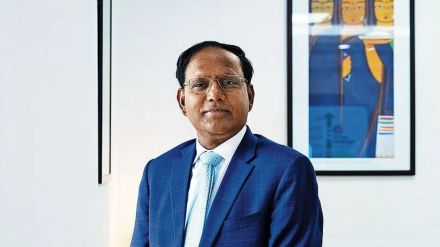The government’s long-awaited strategic disinvestment of IDBI Bank is inching closer to execution, with Department of Financial Services Secretary M Nagaraju on Tuesday indicating that the request for proposal (RFP) will be published shortly.
Speaking on the sidelines of the CII Financing Summit, Nagaraju refrained from commenting on PSB mergers, but when asked about the status of the IDBI Bank stake sale and the RFP, he said, “You may soon hear about it in the papers.”
The government and LIC plan to divest a combined 60.72% of stake in IDBI Bank, thereby transferring the management control to the new owner.
After the transaction, the government is expected to retain a 15% stake in IDBI Bank, and LIC will hold around 19%. The government has earlier indicated that the stake sale is expected to be completed by the end of FY26.
Nagaraju announced that the Unified Payments Interface (UPI) is now operational in seven countries, with plans to expand further this year. “We are in discussions with nearly 70 countries to take UPI global. Our priority is to make it available first in the Middle East and East Asia, and then expand to Europe,” Nagaraju said.
He confirmed that UPI is already live in Singapore, the UAE, Mauritius, France, Sri Lanka, Bhutan, and Nepal. This expansion, he noted, is not just about technology, but also about building trust and interoperability across borders. “India now accounts for nearly 50% of global digital transactions. India’s fintech leadership is now growing, I think global.”
However, Nagaraju highlighted that domestic inclusion remains a challenge. “We must not forget our rural populations,” he said.
Despite government initiatives like PM Jeevan Jyoti Bima Yojana, PM Suraksha Bima Yojana, and Atal Pension Yojana, India still lags behind global standards in terms of insurance premiums and coverage. A gap exists in mandatory pension savings for private-sector employees earning above Rs15,000 per month, which needs to be addressed.
“Some of these private sector employees earning more actually lack pension savings, which is very concerning. We need to secure their future, not through dependence on children, but through financial preparedness for old age,” he said.
